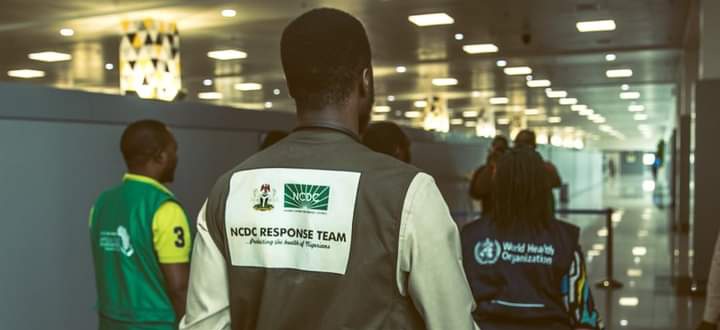File photo of NCDC response team
The Nigeria Centre for Disease Control (NCDC) says it has activated its national multi-sectoral and multi-disciplinary Lassa fever emergency operations centre (EOC) in response to the outbreak in parts of the country.
Ifedayo Adetifa, NCDC director-general, in a statement on Wednesday, said the activation of the EOC became necessary “given the increase in the number of confirmed Lassa fever cases across the country and a joint risk assessment with partners and sister agencies”.
The agency had also activated the operations centre in January 2020, amid a rise in cases.
According to the NCDC, as of January 23, 2020, a total of 115 confirmed cases and 26 deaths have been reported from 11 states, with the reports in weeks one and two showing the highest number of confirmed cases recorded in the last four years for the same period.
Advertisement
The agency noted that since 2016, it has worked hard to improve diagnostic capacity for the disease.
“Currently, seven laboratories can conduct confirmatory tests for Lassa fever in Nigeria and are coordinated by the NCDC National Reference Laboratory (NRL),” the statement reads.
“This has improved active case detection for the disease. Similarly, care for affected individuals has improved with NCDC providing support to states, including the provision of emergency medical and laboratory supplies as well as oral and intravenous Ribavirin for preventive and curative treatment to treatment centres across the country.
Advertisement
“To support and strengthen the response efforts of states, NCDC has continued to deploy Rapid Response Teams (RRT) as required to states. The RRTs through the State Public Health Emergency Operation Centres (PHEOCs) work with states across all response pillars to strengthen preparedness and response activities.
“Furthermore, using a One Health approach, the NCDC is working with relevant ministries, departments, health agencies, and partners to strengthen the capacity of states to effectively manage this outbreak alongside COVID-19 and other diseases of public health relevance.”
Add a comment






